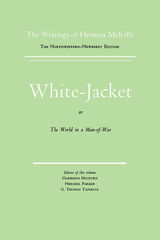Melville’s Israel Potter: Reflections on the American Dream
Harvard University Press, 1969
Paper: 978-0-674-56475-6
Library of Congress Classification PS2384.I73K4
Dewey Decimal Classification 813.3
Paper: 978-0-674-56475-6
Library of Congress Classification PS2384.I73K4
Dewey Decimal Classification 813.3
ABOUT THIS BOOK
ABOUT THIS BOOK
Alexander Keyssar’s study focuses on Melville’s treatment of the social and existential condition of the American common man—his inability to realize the happiness promised by the American dream and the impurity of democracy in a society with marked economic classes. The author discusses the literary coherence—thematic rather than narrative—of Melville’s work as illustrated by Israel Potter and as representative of the novelist’s writing during the 1853–1856 period. He includes a brief analysis of Melville’s conception of literary “truth” and a discussion of the peculiar role of comedy in the sad story of Israel Potter. Melville’s insights into the political and social flaws of America “contain remarkable relevance for the contemporary reader.”
See other books on: 1819-1891 | American Dream | Melville, Herman | Reflections | Revolution, 1775-1783
See other titles from Harvard University Press

